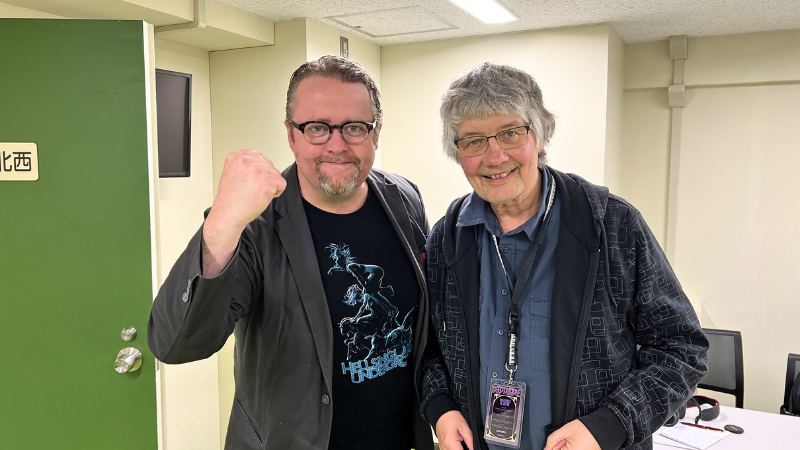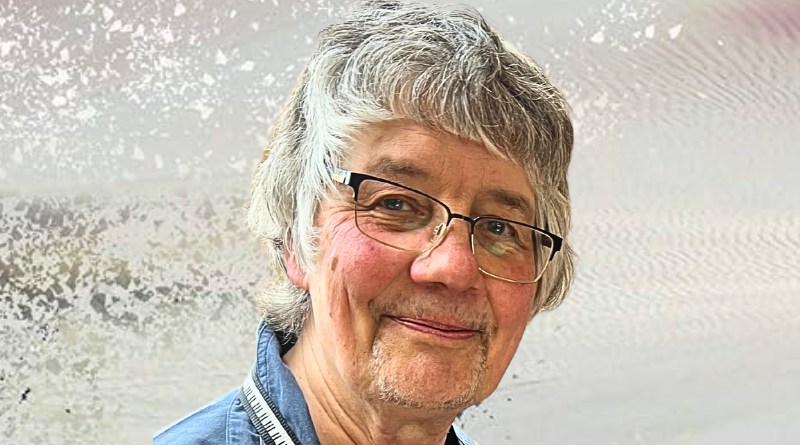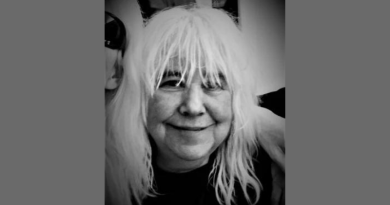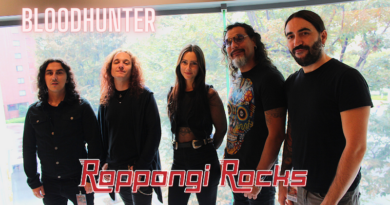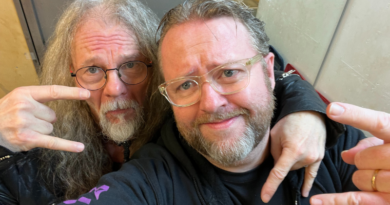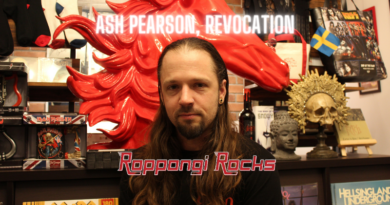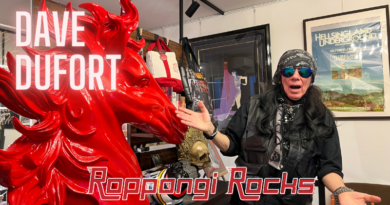Deep Purple’s Don Airey: “We tried to slow down for a bit, but it didn’t work out”
Backstage with Deep Purple at the Budokan in Tokyo. Holy ground for any rock fan. Roppongi Rocks’ Stefan Nilsson had a brief chat with keyboardist Don Airey before Deep Purple put on a great show at the legendary venue.
English keyboardist Don Airey has played with more legendary rock acts than most other musicians. His career has included playing with Rainbow, Gary Moore, Ozzy Osbourne, Black Sabbath, Whitesnake, Judas Priest, Saxon, Michael Schenker, Brian May, Uriah Heep and many more. Don was recruited to replace Jon Lord in Deep Purple in 2001 and has been touring and recording with the band ever since.
“Here we are!” says Don Airey as I meet him backstage at Budokan, the Tokyo venue where Purple recorded part of the legendary live album “Made in Japan” in August 1972.
Deep Purple at Budokan. Does it get more classic than this? “No, it doesn’t. It’s one of the great gigs to play and I’m very glad to be here. Thrilled and excited and all that good stuff!”
You have now been in Deep Purple for more than two decades. When you first got the call, it was as a temporary fill-in for Jon Lord. “They said, ‘Can you come for three days?’ And after three days, they said can I come for three weeks. And it was four weeks and then eventually I got the call. ‘Jon’s left the band and there are four names on the shortlist. All of them are yours!’ I don’t know how true that was.”
Deep Purple had been around for several decades by the time you stepped into the band. It was perhaps not the easiest gig to walk into. “It’s a funny old gig. It’s got harder as it’s gone along. It was easy standing in for Jon at first, because ‘Jon is coming back’. How could anyone leave this band?”
Listening to the newer Deep Purple songs, the ones you have been part of creating, it sounds as if you have gone from filling in for Jon to bringing your own style to both the new and even the old classics. “I realised very early on I couldn’t be Jon. Jon’s Jon. So, I just had to be myself and I had to think quite hard about how I was going to do it, particularly the Hammond part of things. I had to rethink that a bit. But it’s always been great, great fun. Good music, you know.”
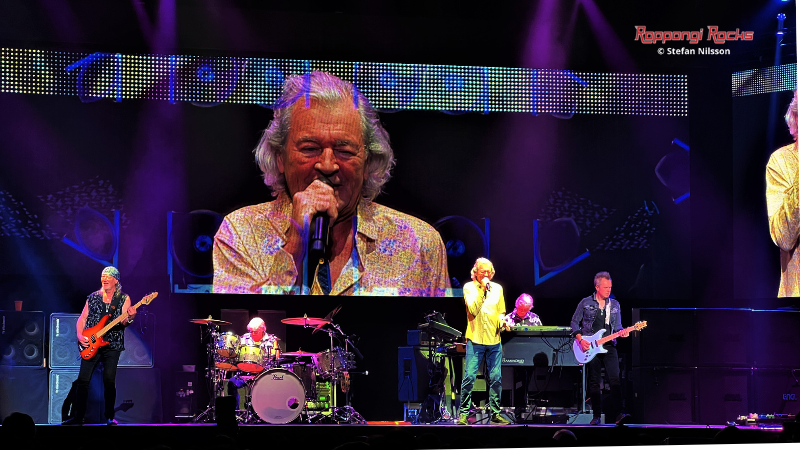
Do you feel that you are now able to contribute to Deep Purple’s songwriting despite being a “newer” member? “It’s a genuine group effort. It just becomes a band. Just five boys trying to make music. See what we can come up with. It’s been very productive. There’s a certain laconic laidback quality about Deep Purple that doesn’t quite match with the image and the music. It somehow all works its way out. It’s kind of a bit quiet, nobody says much. ‘Oh, shall we do something?’ And suddenly it’s all good.”
What’s next for Purple? More tours or will you start to slow down? “We tried to slow down for a bit, but it didn’t work out. Haha! Everybody complained. You know, it’s not really up to the band whether you slow down or not. It’s up to the audience, it’s up to the people who promote gigs. They are making a living too. You think you’re in charge, but you just do as you’re told. And there’s been a certain amount of that. The band has really been going on the up. There’s a demand for it.”
Deep Purple’s most recent addition is lead guitarist Simon McBride who replaced Steve Morse in 2022. He’s quite a musician! “I’ve known Simon for ten years. I met him years ago actually, at a trade show when he was 15. I thought, ‘Look at this guy! He had quite curly hair. He was under 15. But he has played in my band for the last eight years. Ian Gillan phoned up and said, ‘I’m doing an orchestral tour. Can you bring your band along as well?’ That’s when he heard Simon. We kind of thought, if Steve ever leaves, we’ve got someone. And, my god, has he ever come into the band with a bang!”
Tell us about the bass parts on the terrific Judas Priest album “Painkiller” from 1990. Priest bassist Ian Hill didn’t play the bass on that album. You did! “Oh, yeah. Ian Hill wasn’t at the sessions. He was ill. I don’t know what was up with him. Something quite serious. So, they just said, ‘Could you, for the sake of the guitars, just put a bass on a few tracks? I think they left it. It was on my old Minimoog. Chris Tsangarides was the engineer. Me and him were good friends. It just worked very well. They were lovely to work with, The Priest. Oh, what a wonderful band they are. It’s great when we tour together – I can go to any dressing room.”
I think you have played on half the soundtracks of my youth. It is ridiculous how much of the stuff I love that you have been involved with. Do you have anything on your bucket list that you still want to do musically? Someone you haven’t played with? “I would have loved to get to know Eddie Van Halen. I thought he was a wonderful musician. I met him once through Gary Moore. He was a lovely chap. I was a very big fan of his playing.”
